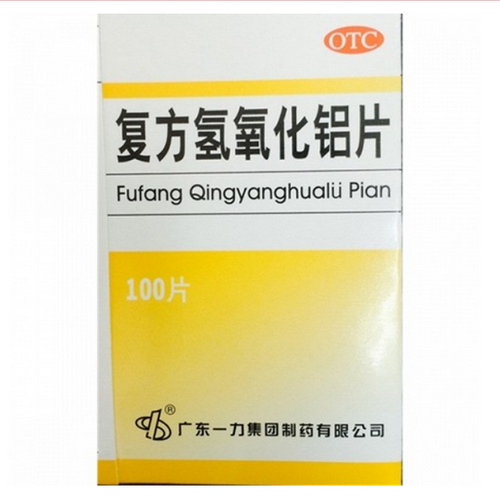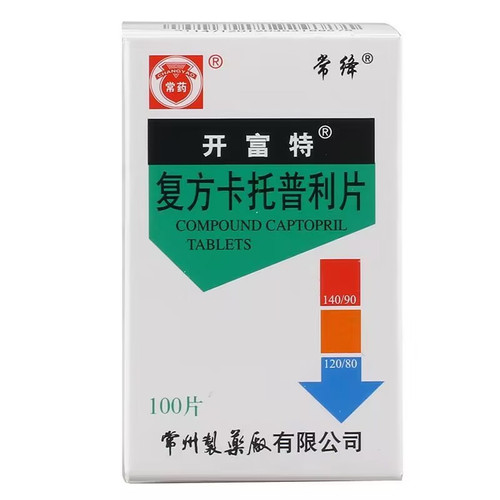Product Overview
[Drug Name]
Generic Name: Compound Bisazine Reserpine Tablets
Trade Name: Haolikang Compound Bisazine Reserpine Tablets 100 Tablets
Pinyin Code: HaoLiKang FuFangShuangZuoLiXuePingPian 10OPian
[Main Ingredients]
This product is a compound preparation. Each tablet contains: 0.03mg of reserpine, 4.17mg of hydralazine sulfate, 3.13mg of hydrochlorothiazide, 30mg of potassium chloride, 1mg of vitamin B1, and 1mg of vitamin B6.
[Properties]
This product is a sugar-coated tablet. After removing the coating, it is slightly yellow.
[Indications/Main Functions]
For hypertension. It has antihypertensive and mild sedative effects and is suitable for the treatment of early and mid-stage hypertension.
[Specifications]
100 tablets
[Dosage and Administration]
Oral. 1-2 tablets at a time, 3 times a day.
[Adverse Reactions]
1. Exercise caution when taking large amounts orally. Common side effects include fatigue, fainting, headache, impotence, decreased libido, depression, nervousness, and anxiety. 2. Persistent adverse reactions require caution. Diarrhea, dizziness, dry mouth, loss of appetite, nausea, vomiting, and nasal congestion are common. 3. Central nervous system or cardiovascular reactions that may persist after discontinuation include dizziness, fatigue, fainting, impotence, decreased libido, bradycardia, and fatigue. 4. Long-term use in menopausal women is linked to an increased risk of breast cancer, but this is currently unconfirmed.
[Contraindications]
1. Contraindicated in patients with gastric or duodenal ulcers; 2. Contraindicated in patients with Parkinson's disease; 3. Contraindicated in patients with allergies to any of the components of this product; 4. Contraindicated in pregnant and lactating women; 5. Contraindicated in patients with depression.
[Drug Interactions]
1. The dosage needs to be adjusted when used with other antihypertensive drugs; 2. When used with digitalis or quinidine, high doses may cause arrhythmias; 3. When used with tricyclic antidepressants, the antihypertensive effect of this product may be weakened.
[Precautions]
1. Use with caution in patients with frailty, renal insufficiency, arrhythmias and coronary heart disease. 2. Patients allergic to rauwolfia preparations are also allergic to this product. 3. Interference with diagnosis: (1) When using this product, false low values may appear when measuring urine steroids using the modified GlennNelson method or the Holtroff Koch modified Zimmerman reaction; (2) It may increase serum prolactin concentration. 4. Use with caution in the following situations: arrhythmias, cardiac depression, epilepsy, cholelithiasis, history of depression, tremor paralysis, peptic ulcer, pheochromocytoma, renal impairment, ulcerative colitis, and poor respiratory function. Elderly, frail patients, and patients receiving electroconvulsive therapy should also be used with caution. 5. If symptoms such as morning insomnia, loss of appetite, impotence, or depression occur, discontinue the drug immediately. 6. In patients with cholelithiasis, the increased gastrointestinal motility and secretion caused by this drug may precipitate biliary colic. 7. Do not use if the drug's properties change.
[Pediatric Use]
Unclear information available.
[Elderly Use]
Use with caution.
[Overdose]
Unclear information available.
[Pharmacology and Toxicology]
This drug achieves its antihypertensive, heart rate-lowering, and central nervous system-inhibiting effects by depleting norepinephrine from peripheral sympathetic nerve endings and depleting catecholamine and serotonin stores in the heart, brain, and other tissues. The antihypertensive effect is primarily achieved by reducing cardiac output, lowering peripheral resistance, and partially inhibiting cardiovascular reflexes. The heart rate-lowering effect is not significant in patients with a normal heart rate, but is noticeable in patients with sinus tachycardia.






